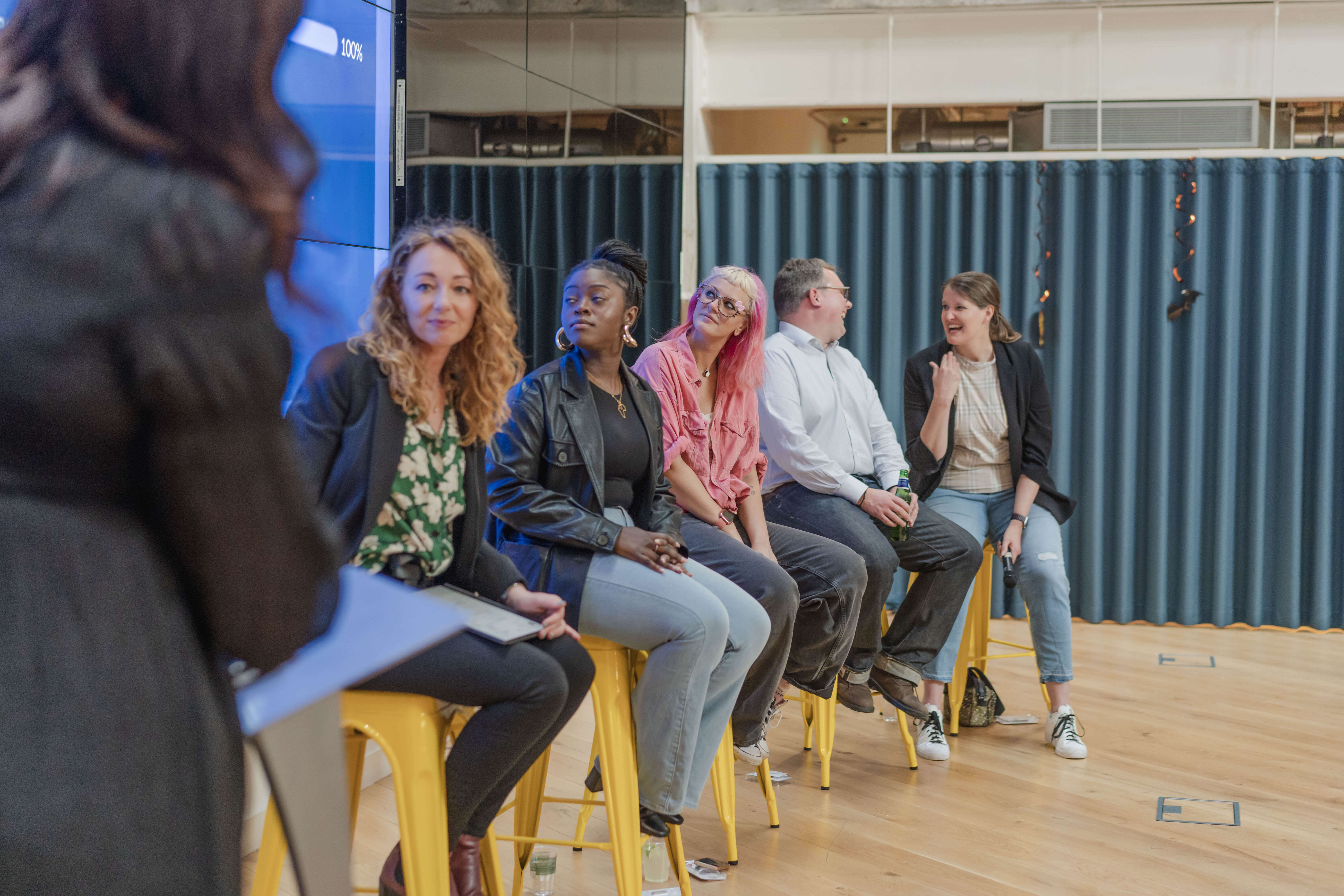
Women in DevOps: Empowering women: tackling toxic productivity & hustle culture
Is the age of 80–100 hours a week a thing of the past?
The pandemic transformed the workplace, bringing awareness to unrealistic expectations. More mindful initiatives such as the four-day work week, hybrid office models, shorter commutes, and flexible and inclusive work perks have been implemented to encourage more of a balance.
On the 28th of April, we brought our Women in DevOps community together for our first in-person event since 2020 for an informative panel discussion led by Kate Richardson, the Head of Diversity and Inclusion at G Network.
During the conversation we were joined by four market-leading experts, Temi Olukoko, a DevOps Engineer at Funding Circle UK, Steph Weiss an IT Business Relationship Director at Burberry, Amy Allen a Junior Software Developer at Feeld and Alex Hibbitt, Head of SRE at Photobox, who explored all sides of serverless.
The discussions began with our panel of experts uncovering their interpretations of hustle culture. “My name is Steph and I’m a workaholic” – Steph, Burberry. Steph highlights that Hustle culture is a huge challenge in the fashion industry, but she is “driven to see the gender gap corrected”. Alex, "worries that hustle culture has become the norm in the workplace" and is driven to ensure companies understand the potential risks of company cultures being negative. Temi confirmed that she is three months into her DevOps career but has experienced hustle culture in her previous roles where her mental health ‘went down the drain’, Temi explained she now values personal life outside of work, working to live, not living to work.
When questioning our panel on the characteristics of hustle culture, Alex explained hustle culture is working as much as you possibly can, putting in more hours but not necessarily producing the workload to match this. Alex is concerned that society has normalised hustle culture, with norms such as ‘side hustle’ becoming something to celebrate. Steph believes “hustle culture to me is losing your ability to set boundaries, with companies taking advantage.” Our experts are in agreement that a hustle culture is where an individual prioritises workload, and work-life balance is non-existent.
Boundaries are not something that can be set alone. Organisations need to have more transparency when understanding someone is at their worst, or at their best. It can be easy to lose perspective so organisations should strive to make their people partners and lead with empathy and compassion. The panel were in agreement that working smart was the most impactful way to success, it may take longer to achieve in a longer period of time, but there will be the risk of burnout, overworking or exhaustion.
Temi uncovered that when determining what success looks like to her, she sets herself clear goals and perspectives. She thinks about what she is doing now, and what she wants to do in 3 – 5 years’ time with a clear plan and taking control and having a healthy response to failure is fundamental to career development and growth.
Hustle culture is rife in the DevOps industry. Alex reiterated that he strives to have a team that is happy and healthy. He believes it is fundamental to set an example, be a role model to the team, and understand the hours his team puts in, so he can ensure work-life balance. Steph explains that she thinks it is helpful to normalise failure, asking what is the impact of failure and what is the impact on the business of that failure? Steph believes that getting comfortable with the learning process and being transparent on your journey will only help to support growth and employee understanding. It is important to start a conversation early on failure, in order to overcome and understand how to move forward.
When discussing burnout, Amy spoke about her experiences during the pandemic, being on call 24/7 otherwise “the app could set on fire”. Her coping mechanisms to overcome burnout are to be transparent, and supportive, and believes being collaborative in a DevOps team is essential. No one should be expected to work a 100-hour working week.
Our panel discussed building confidence and understanding your self-worth. Temi talked about handling unacceptable behaviour in the workplace. She is naturally very introverted but explains putting yourself in situations where you have to be confident, and stepping outside of your comfort zone, for example going to events alone and meeting people can really help to build on confidence.
Steph discussed leadership, the importance of transparency and being open to pressures facing her team, along with not being too overprotective of the team can help to build a healthier workforce. Steph is flexible with her working day, starting work later in the morning rather than starting early doors, but finishing up by 7 pm. Enabling her team to show up and be their true authentic selves by working the hours that suit their personal needs.
